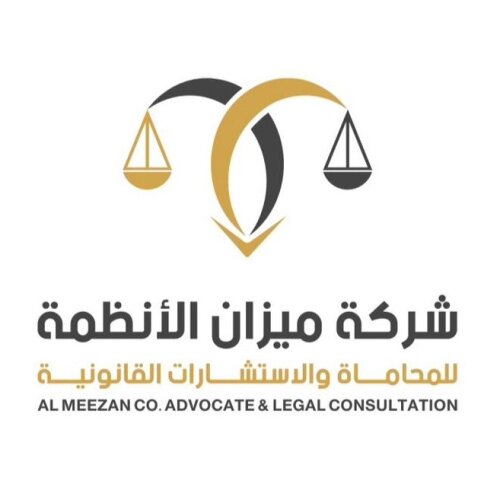
Best Estate Planning Lawyers in Saudi Arabia
Share your needs with us, get contacted by law firms.
Free. Takes 2 min.
Or refine your search by selecting a city:
List of the best lawyers in Saudi Arabia

About Estate Planning Law in Saudi Arabia
Estate planning in Saudi Arabia involves preparing for the management and distribution of an individual's estate during their life and after death. It takes into account the unique blend of local customs, Islamic law (Sharia), and government regulations. A vital aspect of estate planning in this context is ensuring that all actions comply with the principles of Sharia, which significantly influence inheritance matters, including the shares of heirs, the role of wills, and the management of waqfs and trusts. Estate planning is essential for preserving wealth across generations and ensuring that asset distribution aligns with the individual's wishes, to the extent allowed by law.
Why You May Need a Lawyer
There are several situations where individuals may require legal assistance in estate planning in Saudi Arabia:
- When drafting a will in adherence to Sharia law, which imposes specific guidelines and limitations.
- While setting up trusts and waqfs to manage and protect assets for beneficiaries.
- In cases involving complex family structures or private business interests that require specialized planning strategies.
- To navigate the inheritance process when an estate includes international assets or non-Saudi heirs.
- If disputes arise concerning the interpretation of a will or the distribution of assets among heirs.
- To ensure that all tax obligations relating to an estate are considered and managed appropriately.
Local Laws Overview
Estate planning in Saudi Arabia is governed largely by Islamic law, which dictates specific inheritance shares through established guidelines known as "Faraid." These rules define the portions of an estate that are allocated to family members such as spouses, children, and parents. Additionally, while wills can express an individual's wishes, they are subject to certain restrictions under Sharia; for example, one can only bequeath up to one-third of the estate to non-heirs, the remainder must be distributed according to Faraid. Moreover, the establishment of a waqf (a philanthropic trust) can be a crucial part of estate planning, allowing individuals to support charitable causes or family members indefinitely. Governmental regulations, particularly those related to property ownership and taxation, must also be considered during estate planning.
Frequently Asked Questions
What is the role of Sharia law in estate planning?
Sharia law plays a central role in estate planning in Saudi Arabia, as it governs the distribution of assets after death through a set structure of inheritance shares known as Faraid. Wills must comply with these principles, limiting deviation from prescribed shares.
Can I bequeath my entire estate to a single heir?
Under Sharia law, an individual cannot bequeath their entire estate to a single heir through a will. Only up to one-third of the estate can be allocated to non-heirs or specific individuals outside the Faraid allocations.
How are international assets handled in estate planning?
International assets are subject to the jurisdiction of the country where they are located. Coordination between local and foreign legal systems is necessary, and professional legal assistance can help in aligning estate plans with both Saudi and international regulations.
What is a waqf?
A waqf is a charitable endowment under Islamic law where the founder donates an asset for religious or charitable purposes. It can serve as a means to preserve wealth and benefit family members or the community continuously.
Are there tax implications for estate planning in Saudi Arabia?
Saudi Arabia traditionally does not impose inheritance taxes, but other tax obligations may arise from property and business interests. Consulting a legal expert can help navigate these potential tax issues.
Is notarizing a will necessary?
While not strictly required under Saudi law, notarizing a will can help ensure its authenticity and facilitate the probate process.
Can foreigners own property in Saudi Arabia?
Foreigners are largely restricted from owning property in Saudi Arabia, with some exceptions in specific economic cities or cases requiring special permission. Estate planning must account for these regulations.
How does estate distribution work without a will?
If an individual dies without a will, the estate is distributed strictly according to Faraid principles, allocating shares to heirs as specified in Sharia law.
What happens if disputes arise among heirs?
Disputes among heirs can be resolved through mediation or legal proceedings in accordance with Islamic and local laws. Legal assistance is often necessary to navigate these conflicts.
How can I change my will after it is made?
A will can be modified or revoked at any time by the individual as long as they are of sound mind. Changes must comply with Sharia law, and legal advice is recommended to ensure the amendments are valid.
Additional Resources
The following resources can be valuable for individuals seeking legal advice on estate planning in Saudi Arabia:
- The Ministry of Justice (Saudi Arabia) - provides information on legal processes and requirements.
- Local legal firms specializing in estate law - for personalized legal advice and assistance.
- Saudi Bar Association - offers access to qualified lawyers and legal professionals.
- Books and publications on Sharia law and estate planning principles - for comprehensive legal insights.
Next Steps
If you require legal assistance in estate planning, consider taking the following steps:
- Identify your estate planning needs and objectives, taking into account your family structure, assets, and any potential conflicts or special considerations.
- Consult with a qualified estate planning lawyer who specializes in Saudi and Islamic law to ensure your plans comply with all legal and religious requirements.
- Prepare and organize your financial documents, property deeds, and any existing wills or estate plans.
- Discuss and document your wishes clearly to ensure all details are understood and correctly implemented in your estate plan.
- Review and update your estate plan regularly or as your circumstances change to ensure continued compliance and relevance.
Lawzana helps you find the best lawyers and law firms in Saudi Arabia through a curated and pre-screened list of qualified legal professionals. Our platform offers rankings and detailed profiles of attorneys and law firms, allowing you to compare based on practice areas, including Estate Planning, experience, and client feedback.
Each profile includes a description of the firm's areas of practice, client reviews, team members and partners, year of establishment, spoken languages, office locations, contact information, social media presence, and any published articles or resources. Most firms on our platform speak English and are experienced in both local and international legal matters.
Get a quote from top-rated law firms in Saudi Arabia — quickly, securely, and without unnecessary hassle.
Disclaimer:
The information provided on this page is for general informational purposes only and does not constitute legal advice. While we strive to ensure the accuracy and relevance of the content, legal information may change over time, and interpretations of the law can vary. You should always consult with a qualified legal professional for advice specific to your situation.
We disclaim all liability for actions taken or not taken based on the content of this page. If you believe any information is incorrect or outdated, please contact us, and we will review and update it where appropriate.
Browse estate planning law firms by city in Saudi Arabia
Refine your search by selecting a city.













